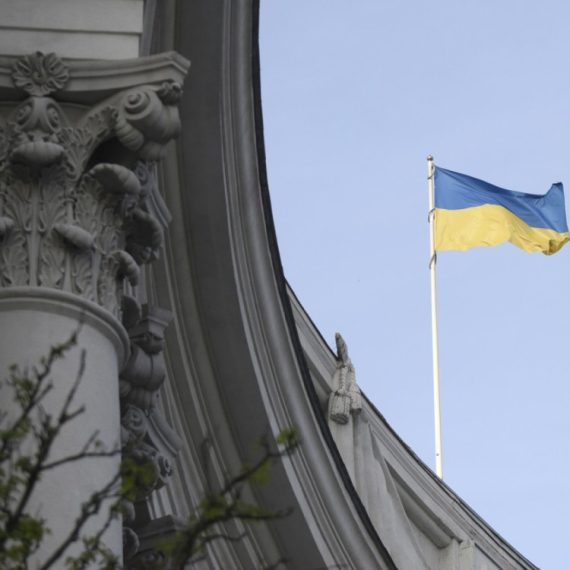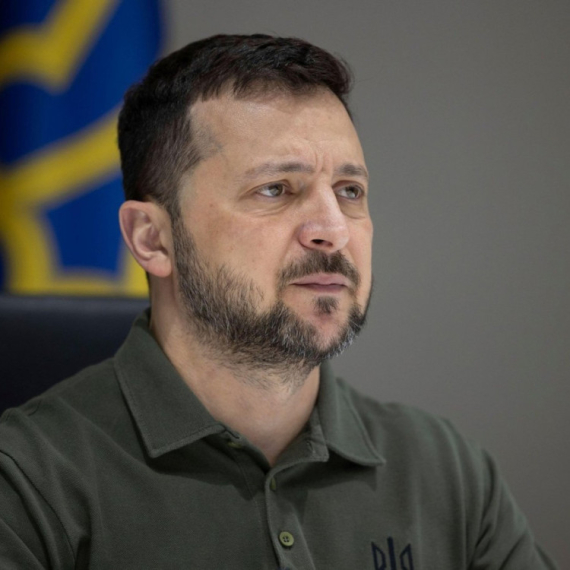Tadić cabinet denies issuing "guidelines"
The president’s cabinet says a document with recommendations on how to make statements regarding EU and the Hague was not sent to the government.
Wednesday, 09.12.2009.
16:12

The president’s cabinet says a document with recommendations on how to make statements regarding EU and the Hague was not sent to the government. Citing unnamed sources, Belgrade daily Danas today published what it said was an internal document on how ministers and other government officials should give statements when asked about EU integration and Hague cooperation, "until December 11". Tadic cabinet denies issuing "guidelines" The document allegedly came from the cabinet of President Boris Tadic. However, the cabinet denied the existence of such a document in a statement for Beta news agency. The newspaper wrote that this document, according to unnamed sources, was given to government officials last week and was titled, “Ministers, don't kick up a dust". "Don't kick up a dust" The main points of the alleged guidelines, as reported in Danas: -The report of Hague Chief Prosecutor Serge Brammertz is very positive and objective. The chief prosecutor states that he is satisfied with the level of cooperation between Serbia and the tribunal -Serbia will continue to do everything it can to find, arrest, and extradite the two remaining fugitives to -We believe that the conditions have been met for the EU to implement The Interim Trade Agreement -A possible decision of the Netherlands to support the implementation of the Interim Trade Agreement is a sovereign decision of that country -Do not make comments about the Mladic investigation. (This recommendation goes in particular to the members of the Action Team for Hague cooperation) -A possible unfreezing of the interim agreement should in no way be presented as a victory for Serbia, that is, a defeat for the Netherlands or a change in its stance -The Netherlands did not change its stance towards the need to arrest and extradite Ratko Mladic, rather, it accepted the evaluations from Brammertz’s last report -Generally, there should be no predictions of Serbia’s next steps towards EU membership, which will take place after the interim agreement is unfrozen The document then lists "Questions that should NOT [sic] be mention in public statements during the coming period": -Whether and when Serbia will apply for EU candidacy -When the ratification of the Stabilization and Association Agreement will begin in the parliaments of EU member-states -The “Greek Plan” for the integration of the Western Balkans into the EU by 2014
Tadić cabinet denies issuing "guidelines"
The document allegedly came from the cabinet of President Boris Tadić.However, the cabinet denied the existence of such a document in a statement for Beta news agency.
The newspaper wrote that this document, according to unnamed sources, was given to government officials last week and was titled, “Ministers, don't kick up a dust".
"Don't kick up a dust"
The main points of the alleged guidelines, as reported in Danas:-The report of Hague Chief Prosecutor Serge Brammertz is very positive and objective. The chief prosecutor states that he is satisfied with the level of cooperation between Serbia and the tribunal
-Serbia will continue to do everything it can to find, arrest, and extradite the two remaining fugitives to
-We believe that the conditions have been met for the EU to implement The Interim Trade Agreement
-A possible decision of the Netherlands to support the implementation of the Interim Trade Agreement is a sovereign decision of that country
-Do not make comments about the Mladić investigation. (This recommendation goes in particular to the members of the Action Team for Hague cooperation)
-A possible unfreezing of the interim agreement should in no way be presented as a victory for Serbia, that is, a defeat for the Netherlands or a change in its stance
-The Netherlands did not change its stance towards the need to arrest and extradite Ratko Mladić, rather, it accepted the evaluations from Brammertz’s last report
-Generally, there should be no predictions of Serbia’s next steps towards EU membership, which will take place after the interim agreement is unfrozen
The document then lists "Questions that should NOT [sic] be mention in public statements during the coming period":
-Whether and when Serbia will apply for EU candidacy
-When the ratification of the Stabilization and Association Agreement will begin in the parliaments of EU member-states
-The “Greek Plan” for the integration of the Western Balkans into the EU by 2014





















































Komentari 0